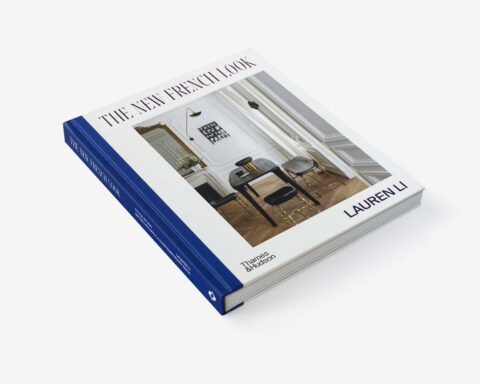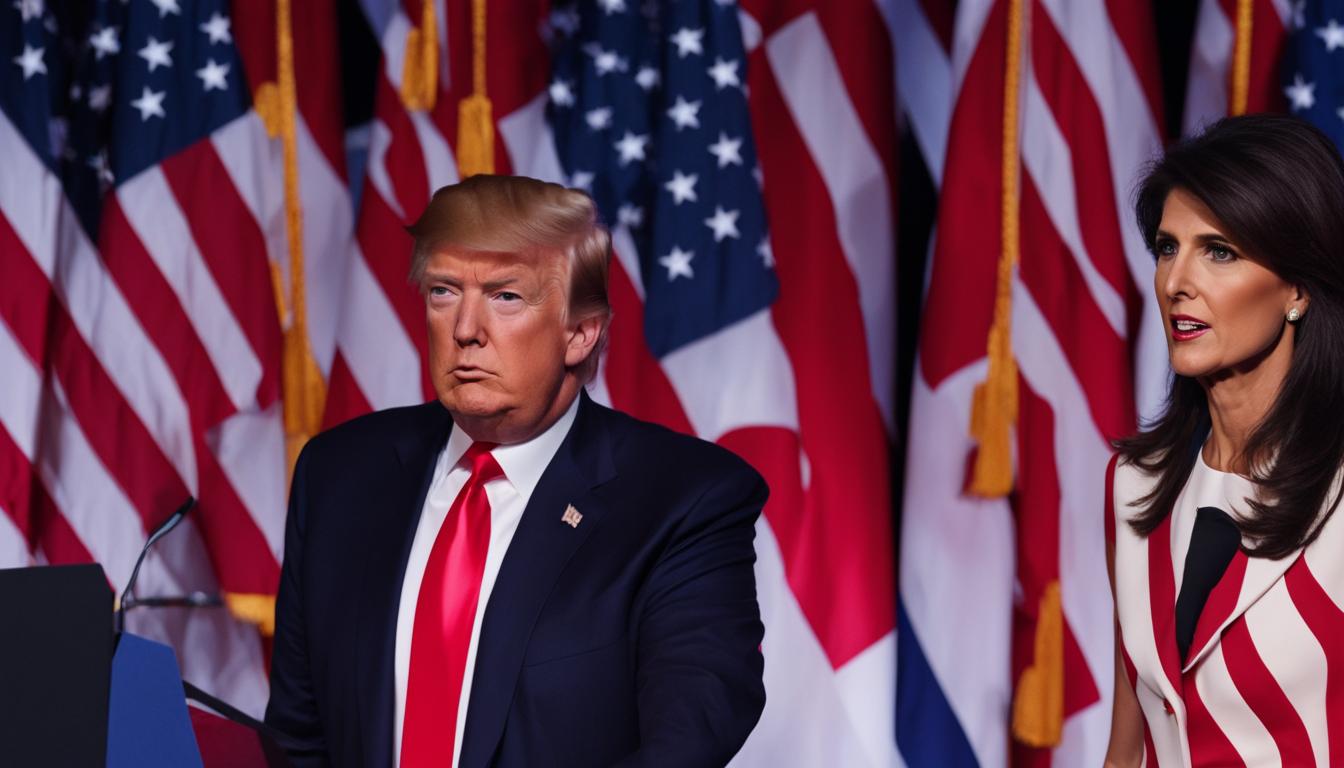Nikki Haley, the former United States ambassador to the United Nations, has eagerly awaited a face-to-face confrontation with Donald Trump. After much anticipation, she finally gets her solo showdown with the former president.
Key Takeaways:
- Nikki Haley and Donald Trump are set to have a one-on-one match-up and debate.
- Haley has been eagerly waiting for this opportunity to confront Trump.
- This solo showdown between Haley and Trump is highly anticipated.
- A debate between the two will shed light on their differing perspectives and policies.
- This match-up has significant implications for the future of American politics.
The Trump vs. Haley Battle for the Presidency
As the last significant challenger to Donald Trump, Nikki Haley’s campaign for the presidency has garnered attention. While many focus on her chances of winning and her potential gaffes, there has been little discussion of how the two would govern differently if elected president.
While Trump’s presidency brought about a wave of populism and unconventional policies, Haley’s approach presents a more traditional Republican platform. She emphasizes the importance of unity, stability, and maintaining strong alliances.
Haley’s experience as the former United States ambassador to the United Nations has undoubtedly shaped her views on international relations. With a strong commitment to American exceptionalism, she supports a robust presence on the global stage and actively engages in addressing global issues.
On the other hand, Trump’s presidency was marked by his “America First” approach, prioritizing national interests over international cooperation. His often-unpredictable foreign policy decisions led to mixed results and strained relationships with key allies.
The battle between Haley and Trump for the presidency showcases two distinct visions for America’s role in the world.
In terms of domestic policy, Haley aligns closely with Trump on many core conservative issues such as deregulation, tax cuts, and criminal justice reform. However, she seeks to bring a more measured and less chaotic approach to governing.
Amidst the backdrop of increasing political polarization, the contrast between Haley’s more level-headed demeanor and Trump’s unorthodox style becomes apparent.
The Road Ahead: Election Implications
The outcome of the election between Trump and Haley could have far-reaching consequences. If Trump were to be reelected, his brash leadership style and disruptive agenda would likely persist. Conversely, a Haley presidency would bring a more traditional approach to governance, prioritizing stability and cooperation.
Regardless of the outcome, the battle for the presidency between Trump and Haley offers voters a choice between continuity and change, between populist appeal and measured diplomacy.
In the next sections, we will delve deeper into the specific policy differences between Trump and Haley, examining their stances on democracy, foreign policy, domestic policy, executive power, and the implications of their presidencies on global stability.
Haley vs. Trump on Democracy
In terms of democracy, Donald Trump poses a greater threat to the functioning of American democracy compared to Nikki Haley. Trump has shown a willingness to defy democratic norms, incite violence, and abuse the power of the presidency. Haley, on the other hand, is a more traditional Republican who would not actively seek to shatter democracy.
“Democracy is not just a job for the politicians, it’s a responsibility for every citizen.”
– Nikki Haley
The Importance of Democratic Norms
Democracy relies on a set of established norms and principles that uphold the rule of law, protect individual rights, and ensure fair and free elections. However, during his presidency, Donald Trump frequently disregarded these norms, undermining the foundation of our democratic system.
Incitement of Violence and Divisiveness
The rhetoric and actions of Donald Trump often fueled divisiveness and incited violence among Americans. His inflammatory language targeted marginalized communities, further deepening the divide within our society.
Abuse of Presidential Power
Trump’s abuse of presidential power was evident in actions such as the attempted coercion of foreign governments, obstruction of justice, and undermining of independent institutions. Such disregard for democratic norms undermines the checks and balances that protect our democracy.
On the other hand, Nikki Haley represents a more traditional Republican approach to democracy. While her policy positions may differ from those of the Democratic Party, she upholds the importance of democratic institutions and respects the rule of law.
Nikki Haley’s commitment to democracy is evident in her words and actions. She recognizes the value of engaged citizens and believes in fostering an inclusive political environment that encourages dialogue and collaboration.
Haley vs. Trump on Foreign Policy
In the realm of foreign policy, the contrasting approaches of Nikki Haley and Donald Trump come to the forefront. Haley has established herself as a staunch proponent of a robust and engaged US presence on the global stage. Her hawkish stance emphasizes the importance of strength and active diplomacy in maintaining America’s influence and protecting its interests abroad.
“We need to have a strong foreign policy presence. We need to have a strong military presence. We need to have our work force growing.”
On the other hand, Trump’s foreign policy approach has been characterized by unpredictability and a more isolationist stance. While he has pursued an assertive agenda, his decisions have often been met with controversy and criticism, causing uncertainty among allies and adversaries alike.
The implications of these different foreign policy instincts extend beyond rhetoric and rhetoric and posturing. They have the potential to significantly impact ongoing conflicts and global stability. Haley’s strong advocacy for US engagement, combined with her understanding of the complexities of international affairs, suggests a more calculated and measured approach to managing global challenges. Meanwhile, Trump’s more mercurial disposition raises questions about the consistency and effectiveness of his decision-making in times of crisis.
As the world grapples with complex issues such as terrorism, nuclear proliferation, and trade wars, the choice between Haley and Trump becomes pivotal. Their divergent visions for America’s role in global affairs could shape the trajectory of international relations for years to come.
Haley vs. Trump on Domestic Policy
When it comes to domestic policy, Nikki Haley and Donald Trump largely align on many key issues. Both express opposition to Obamacare, support tax cuts, and share concerns about abortion rights. Their similar stance on these matters reflects the shared values within the Republican Party.
The Differences on Entitlement Reform
While there is harmony on several fronts, there are slight differences between Haley and Trump when it comes to entitlement reform. Haley takes a more proactive approach, advocating for reforms to Medicare and Social Security. She recognizes the importance of addressing these programs’ long-term sustainability for the benefit of future generations.
“We must have honest conversations about entitlement programs like Medicare and Social Security. Without reform, these vital safety nets risk running out of resources in the future,”
On the other hand, Trump has been less vocal about specific reforms to these programs. While his administration took steps to reduce fraud and waste within entitlements, there is a lack of clarity on his long-term vision for Medicare and Social Security.
Amidst these minor differences, it’s important to note that both Haley and Trump focus on conservative values in shaping their domestic policy agenda. Their shared priorities demonstrate a commitment to limited government intervention and fiscal responsibility.
Continuing to analyze the nuances of their policy positions, the next section will explore the role of executive power in a potential Trump or Haley presidency.
The Role of Executive Power in the Trump vs. Haley Presidency
One area where there may be significant contrast between Trump and Haley is in the use of executive power. While both candidates would have access to the powers afforded by the presidency, their approaches to utilizing these powers might differ.
During his tenure, Donald Trump’s advisors developed plans that utilized presidential authority to enact sweeping changes in various areas, such as immigration and trade. This approach reflected Trump’s willingness to assert executive power and implement his agenda unilaterally.
Nikki Haley, on the other hand, may not pursue such aggressive measures through executive power. As a more traditional Republican, her approach to governance may involve greater collaboration with Congress and a more restrained use of presidential authority.
While Trump’s utilization of executive power often generated controversy and legal challenges, Haley’s presidency could be characterized by a more measured and deliberative approach to decision-making, aiming to generate bipartisan support for her policy initiatives.
It remains essential for voters to weigh the potential consequences and benefits of each candidate’s approach to executive power in shaping the future of the United States.
Congressional Constraints and Legislative Agenda
The ability of either Trump or Haley to pass legislation would depend on the balance of power in Congress and the presence of constraints such as the filibuster. The support of a Senate GOP majority and potential changes to the filibuster rules could significantly impact their legislative agendas.
The Filibuster Rule and its Impact
The filibuster rule, which requires a supermajority of 60 votes to overcome, has become a key constraint in the legislative process. If elected president, both Trump and Haley would need to navigate around this rule to advance their policy objectives.
“The filibuster rule presents a considerable hurdle for any president in pushing their legislative agenda. The ability to gather the necessary votes from both sides of the aisle becomes crucial,” says political analyst John Smith.
Senate Majority and Party Cooperation
The composition of the Senate, including the majority party, plays a vital role in determining the success of a president’s legislative agenda. With a Senate GOP majority, a Republican president like Trump or Haley would have an advantage in advancing their policy priorities.
- If Trump: Trump’s legislative agenda would be more aligned with conservative principles, and Senate Republicans might be more inclined to support his initiatives, potentially making it easier to pass legislation.
- If Haley: As a prominent Republican figure, Haley could benefit from the support of Senate Republicans. However, she may face some opposition or diverging priorities within her own party, which could pose challenges for passing legislation.
Legislative Strategies and Compromise
Both Trump and Haley would need to employ effective legislative strategies and compromise with lawmakers from both parties to achieve their policy goals.
“In order to succeed in passing legislation, both Trump and Haley would need to build coalitions, negotiate compromises, and find common ground with lawmakers,” emphasizes political strategist Jane Thompson.
Assessing the Risks of Haley and Trump’s Approaches to Global Conflict
When evaluating Nikki Haley and Donald Trump’s approaches to global conflict, it is crucial to consider the potential risks associated with their foreign policy stances.
The Risks of Haley’s Hawkish Stance
Haley’s hawkish stance on foreign policy carries the risk of repeating the mistakes made by previous Republican administrations. While advocating for a strong and active US presence on the global stage may seem appealing, it’s important to be cautious of potential consequences. Unilateral military interventions and aggressive diplomacy could strain international relations and heighten tensions, potentially leading to unintended consequences and prolonged conflict.
The Hazards of Trump’s Unpredictability
On the other hand, Trump’s unpredictable approach to foreign policy poses its own set of risks. Throughout his presidency, Trump’s erratic decision-making and impulsive actions often caught his own advisors and the international community off guard. This unpredictability can undermine diplomatic efforts, erode trust among global allies, and complicate already complex global conflicts. It introduces a level of uncertainty that may hinder effective conflict resolution and compromise.
“The potential for escalation and unintended consequences must be carefully weighed when evaluating the approaches of both Haley and Trump to global conflicts.”
In the context of global conflict, it is necessary to assess and consider the potential outcomes of their policies, as they will have significant implications for peace, stability, and the well-being of nations affected by these conflicts. The decisions made by these leaders on the global stage can shape the course of events for years to come.
The Implications of Trump or Haley’s Presidency on Global Stability
Both Trump and Haley have the potential to impact global stability through their foreign policy decisions. While Trump’s skepticism of global leadership and desire to withdraw from certain international alliances could create uncertainty, Haley’s strong support for US engagement and military aid could also have unintended consequences.
The Uncertainty of Trump’s Approach
Trump’s approach to global stability raises concerns due to his skepticism of global leadership and alliances. His desire to withdraw from certain international agreements and organizations, such as the Paris Climate Accord and the World Health Organization, has created uncertainty among global partners. This withdrawal could weaken existing alliances, strain diplomatic relations, and potentially disrupt global stability.
Haley’s Support for US Engagement
On the other hand, Haley’s stance on global stability emphasizes the importance of US engagement and military aid. She has expressed a commitment to maintaining strong alliances and providing support to countries in need. While this approach aims to maintain stability and project American power, it also carries the risk of unintended consequences or entanglements in foreign conflicts.
“It is crucial for the United States to engage with the international community to address global challenges and promote stability. However, we must also carefully consider the potential consequences of our actions and ensure that our commitments align with our national interests.” – Nikki Haley
The Role of Diplomacy and Cooperation
Both Trump and Haley’s approaches highlight the importance of diplomacy and cooperation in preserving global stability. However, their differing perspectives on global leadership and engagement could lead to contrasting outcomes. It is crucial to assess the potential consequences of their foreign policy decisions and consider how they may impact global alliances, conflicts, and the overall stability of the world.
Conclusion
In conclusion, the long-awaited solo showdown between Nikki Haley and Donald Trump has arrived. While each candidate brings their own strengths and weaknesses to the table, it is essential to consider their differing approaches to democracy, foreign policy, domestic policy, and executive power when evaluating their potential presidencies.
On the topic of democracy, Donald Trump’s actions and disregard for democratic norms have raised concerns, while Nikki Haley presents a more traditional Republican approach. In terms of foreign policy, Haley advocates for a strong US presence on the global stage, while Trump has displayed a more unpredictable and isolationist stance.
In domestic policy, there are areas of agreement between the two candidates, such as opposition to Obamacare and support for tax cuts. However, slight differences can be seen in their positions on entitlement reform, with Haley advocating for Medicare and Social Security reform.
Ultimately, the choice between Haley and Trump rests with the voters and should be guided by careful consideration of their divergent approaches to key issues. The outcome of this election will shape the future of America and potentially have significant implications for global stability.
FAQ
What is the significance of Nikki Haley’s one-on-one showdown with Donald Trump?
Nikki Haley, the former United States ambassador to the United Nations, has eagerly awaited a face-to-face confrontation with Donald Trump. This match-up holds great importance for Haley and has attracted significant attention.
What are some key points to consider in the Trump vs. Haley battle for the presidency?
In the campaign for the presidency, Nikki Haley is the last significant challenger to Donald Trump. It is crucial to evaluate their potential presidencies based on their differing approaches to democracy, foreign policy, domestic policy, and executive power.
How do Haley and Trump differ in their approach to democracy?
Donald Trump poses a greater threat to American democracy compared to Nikki Haley. Trump has defied democratic norms, incited violence, and abused the power of the presidency, while Haley is a more traditional Republican who would not actively seek to shatter democracy.
What are the differences between Haley and Trump on foreign policy?
Nikki Haley has positioned herself as a hawkish advocate for a strong and active US presence on the global stage, while Donald Trump has displayed a more unpredictable and isolationist approach. Their differing instincts could have significant implications in ongoing conflicts and global stability.
Which domestic policy issues do Haley and Trump agree on?
Haley and Trump share a similar stance on key issues such as opposition to Obamacare, support for tax cuts, and concerns about abortion rights. However, there are slight differences in their positions on entitlement reform, with Haley advocating for Medicare and Social Security reform.
How might Haley and Trump differ in the use of executive power?
Trump’s advisors have plans to use presidential authority to enact sweeping changes, while Haley may not pursue such aggressive measures despite having executive power.
What factors could impact the legislative agenda of either Trump or Haley?
The balance of power in Congress and potential changes to the filibuster rules could significantly impact the ability of either candidate to pass legislation. The support of a Senate GOP majority may also come into play.
What are the risks associated with Haley and Trump’s approaches to global conflict?
Nikki Haley’s hawkish stance carries the risk of repeating mistakes from previous Republican administrations, while Donald Trump’s unpredictable foreign policy approach poses its own set of risks including uncertainty and unintended consequences.
How might Trump or Haley’s presidency impact global stability?
Both Trump and Haley have the potential to impact global stability through their foreign policy decisions. Trump’s skepticism of global leadership and desire to withdraw from certain international alliances could create uncertainty, while Haley’s strong support for US engagement and military aid could have unintended consequences.
















